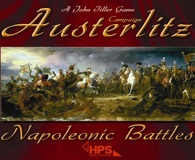
For example, peripheral nerve contains insulin receptors that transduce the neurotrophic and neurosupportive properties of insulin, independent of systemic glucose regulation, while the detection of neuropathy and neuropathic pain in patients with metabolic syndrome and failure of improved glycemic control to protect against neuropathy in cohorts of type 2 diabetic patients has placed a focus on the pathogenic role of dyslipidemia. However, it is becoming increasingly apparent that factors not necessarily downstream of hyperglycemia can also contribute to the incidence, progression and severity of neuropathy and neuropathic pain. Studies in animal models of diabetes have identified multiple plausible mechanisms of glucotoxicity to the nervous system including post-translational modification of proteins by glucose and increased glucose metabolism by aldose reductase, glycolysis and other catabolic pathways. The presence of neuropathy in both insulin-deficient (type 1) and insulin resistant (type 2) diabetes along with the slowing of progression of neuropathy by improved glycemic control in type 1 diabetes has caused the majority of preclinical and clinical investigations to focus on hyperglycemia as the initiating pathogenic lesion. Neuropathy is a common complication of long-term diabetes that impairs quality of life by producing pain, sensory loss and limb amputation. Kutuzov's survival of two nearly mortal head wounds created the legends, additional mystery, and drama surrounding him, not the least astonishing of which was the skilled neurosurgical care that probably saved his life. Napoleon's devastated army retreated to Paris, and Kutuzov became the personification of Russian spirit and character. In 1812, as Napoleon's Grande Armée approached, Kutuzov realized he could not confront Napoleon and he strategically retreated from Moscow, submitting the French to the harsh winter and Russian cavalry. His health did, however, suffer significant effects due to the bullet wounds. Massot, a French surgeon with the Russian army, wrote after treating Kutuzov's seemingly two mortal wounds: "It must be believed that fate appoints Kutuzov to something great, because he was still alive after two injuries, a death sentence by all the rules of medical science." Aided by Massot's expert surgical technique, Kutuzov lived to become intimately engaged in events that altered world history.

The first bullet "ran through the head from one temple to the other behind both eyes." The second bullet entered the cheek, destroyed upper teeth, traveled through the head, and exited the occiput. He was shot in the head twice while fighting the Turks (17) and survived the serious injuries seemingly against all odds. Honored as a national hero and a savior of Russia, Kutuzov has a unique medical story. General Mikhail Kutuzov (circa 1745-1813) brilliantly repelled Napoleon's invasion of Russia.


 0 kommentar(er)
0 kommentar(er)
